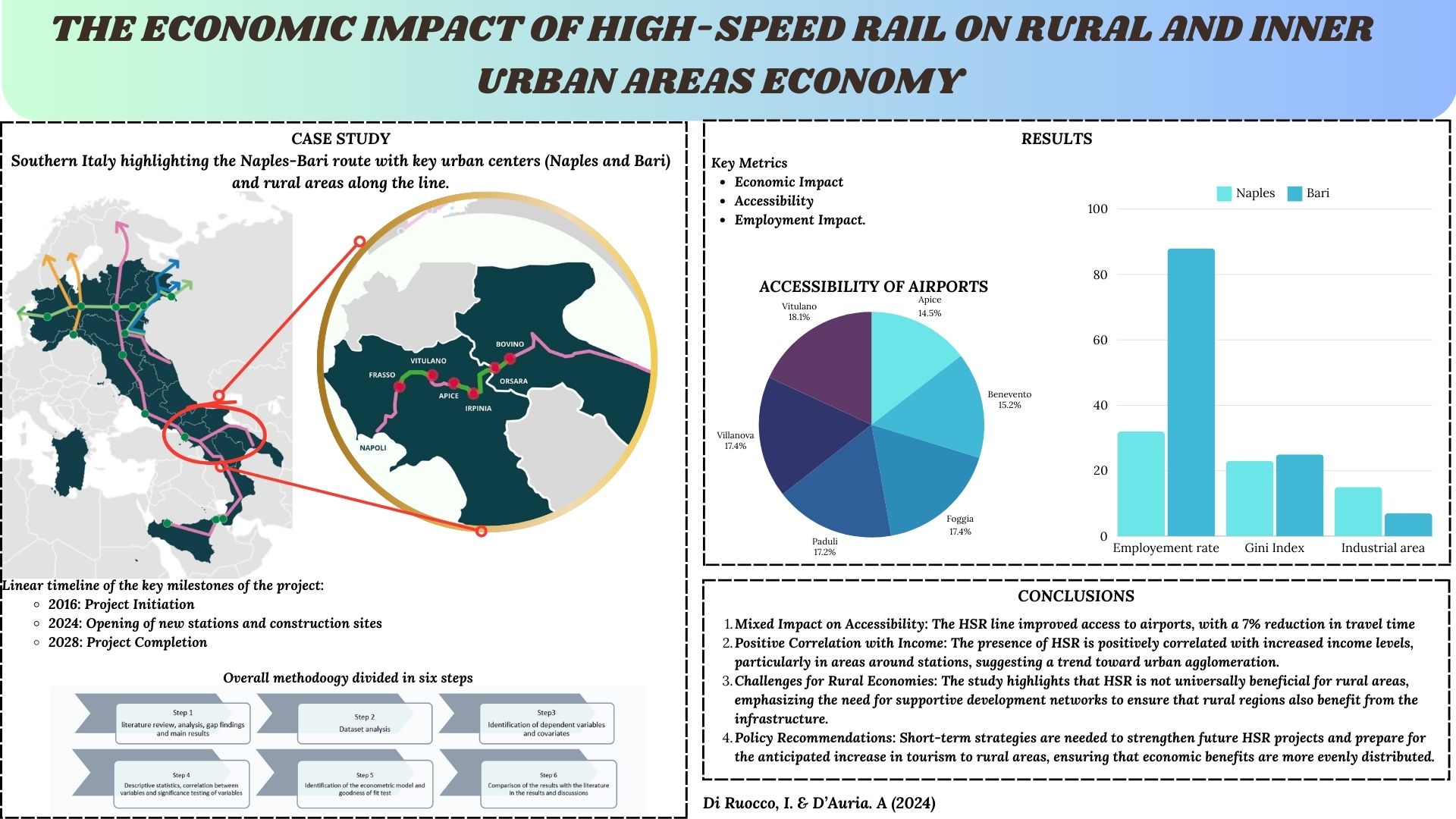Found 1 results
Open Access
Article
03 September 2024The Economic Impact of High-Speed Rail on Rural and Inner Urban Areas Economy: The Case Study of HSR Naples-Bari in South of Italy
High-speed rail (HSR) has revolutionized global transportation by providing fast, reliable, and efficient city-to-city travel. While its urban benefits are well-documented, the potential advantages for rural development are often overlooked. The high-speed rail project on the Naples-Bari route in Southern Italy aims to connect the urban centers of Naples in Campania and Bari in Apulia, traversing inland and rural areas. Initiated in 2016 and planned for completion in 2028, this project is anticipated to deliver numerous benefits. The purpose of this research is to examine the largely overlooked high-speed rail (HSR) in Southern Italy from an economic and territorial perspective and to determine whether it can sustainably promote rural development in the areas along the railway line. This study examines whether the HSR line will enhance economic activities, strengthen industries, and improve spatial accessibility in rural areas. Using a 2020 dataset covering 25 municipalities along the railway line, including those with stations and construction sites projected to open by 2024, three regression models were employed to estimate potential improvements in income and employment. The findings indicate mixed results: access time to airports improves, decreasing by 7%, while access to ports does not see similar benefits. Income shows a positive correlation with HSR, increasing with population growth around stations, suggesting a trend towards urban agglomeration. However, the study underscores that HSR is not universally beneficial for rural economies and that supportive development networks are crucial. Policies should adopt short-term strategies to strengthen future HSR projects and prepare for the anticipated surge in mass tourism to rural areas.
